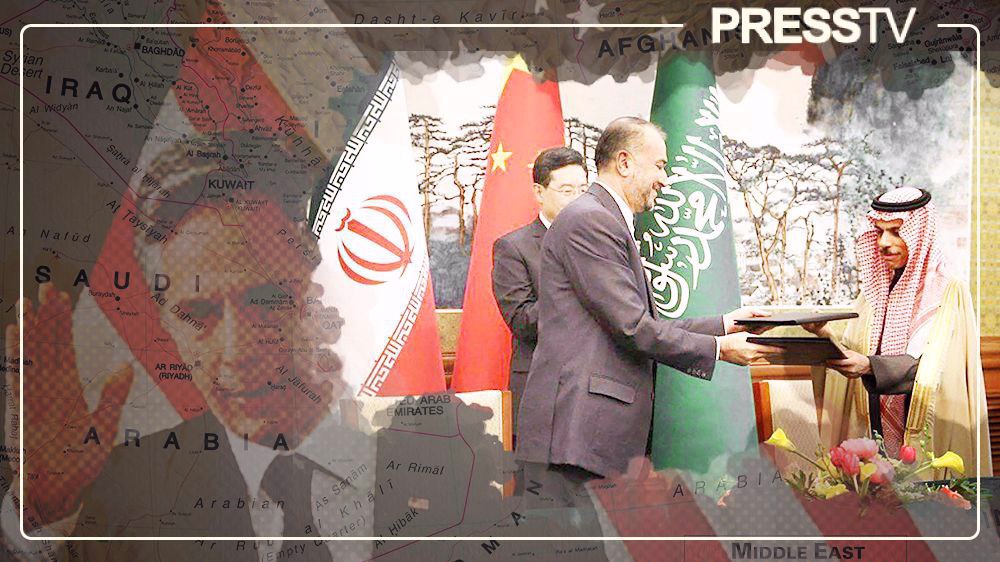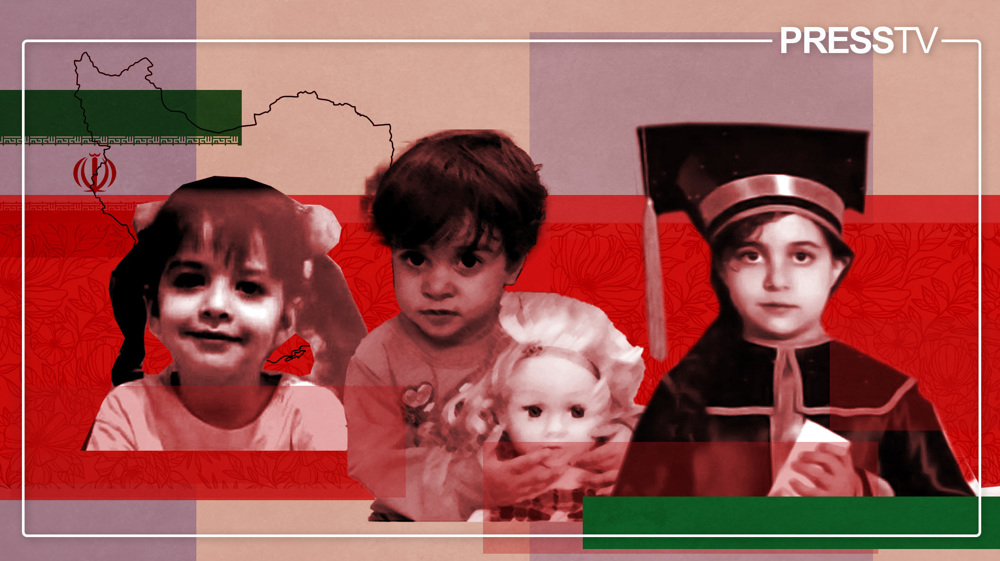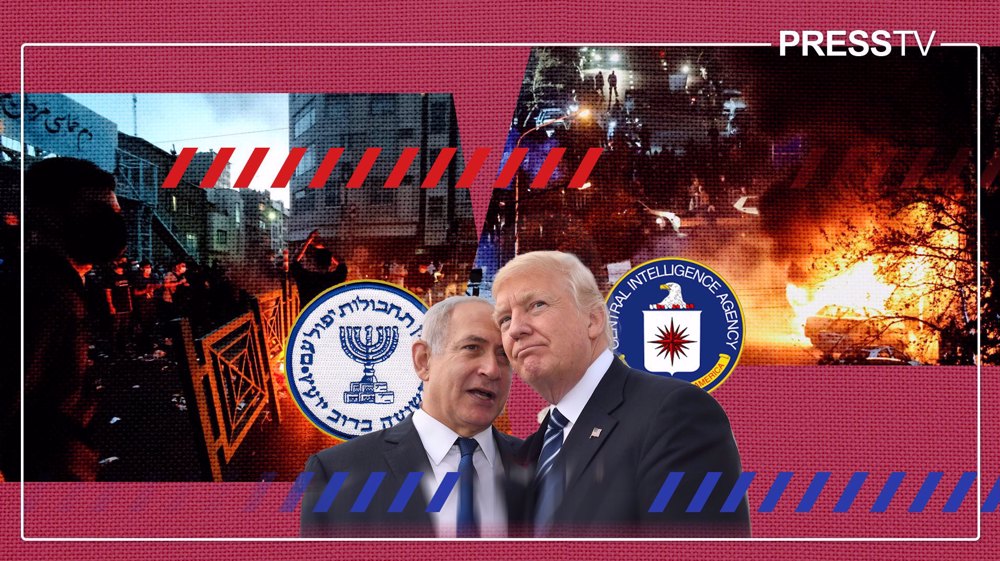Saudi Arabia's welcome departure from 'New Middle East’ to ‘West Asia’
By Omar Ahmed
In recent years, the widely used term ‘Middle East’ has come under greater scrutiny, with critics rightly pointing out that it is a colonial construct rooted in Western perspectives.
Coined by British naval strategist Admiral Alfred Thayer Mahan in the late 19th century, the term served to delineate the region's strategic importance to the British Empire.
This term, along with the equally archaic ‘Near East’ would go on to consolidate diverse cultures, languages, and histories into a monolithic entity, perpetuating a misleading Western-centric narrative.
Iranian and other Eurasianist media outlets have long preferred the term ‘West Asia’ to describe the region, which it is argued, is more geographically accurate while also emphasizing the historical, cultural, and geographical connections shared by countries in the region without necessarily conflating them.
One of the news outlets based in Iran is named West Asia News Agency (WANA).
China’s state-run Xinhua news agency, for example, uses ‘West Asia’ in its reports, while India’s WION broadcaster has a show hosted by Ghadi Francis called ‘The West Asia Post’.
A Youtube Short uploaded by WION earlier this year argued that ‘West Asia’ is the only correct usage, as it “has no geographic bias.”
Lebanon-based The Cradle, in particular, has emerged as a powerful voice in challenging the conventional narrative of the ‘Middle East’ by advocating for the term ‘West Asia’.
Sharmine Narwani, a columnist for The Cradle, told the Press TV website that West Asia is “the start of history in so many ways, and is the original cradle of civilization”.
“While 'Middle East' heaves with colonial baggage, defeatism, and nonstop calamity, ‘West Asia’ reminds us that we are part of the 21st century's biggest geo-economic transformation and that we are the essential bridge between Asia and Europe - the reason Eurasia is even possible,” she said.
Arab media outlets, in contrast, have often perpetuated the status quo by continuing the use of the term ‘Middle East.’ This choice of terminology reflects the enduring influence of Western imperialism in the region.
In February 2019, an opinion piece published by the UAE’s The National raised a pertinent question: Why do we still use the term Middle East when West Asia is more relevant to Arab nations?
The author and global strategist Parag Khanna noted that it “makes far more sense to refer to West Asia” and that “East and South Asia’s rise has compelled West Asia to rediscover its Asian geography.”
It is in this context that an important player in West Asia, Saudi Arabia, is recognizing its rightful place in this region, as opposed to the ‘Middle East,’ and specifically, the envisioned ‘New Middle East,’ as set out by former Israeli premier Shimon Peres in the early 1990s, which was to entail normalization between the Israeli regime and Arab states spurred on by economic development.
This was further expanded on by former US Secretary of State Condoleeza Rice, who served in the George Bush administration when she called for a ‘new Middle East’, which would usher in an age of pro-Western democracies.
The recent Chinese-brokered rapprochement between Saudi Arabia and Iran has effectively thwarted that American-Zionist plot. Recognizing the mutual benefits of cooperation, Riyadh and Tehran have temporarily set aside their differences to pursue stability and economic growth.
This strategic alignment challenges the notion of a divided ‘Middle East’ and demonstrates Saudi Arabia's commitment to regional integration. The resumption of ties with Tehran was lauded by Iran newspaper whose headline at the time read: “West Asia is on the way to reducing tension.”
According to a March article in United World International, Leader of the Islamic Revolution Ayatollah Seyyed Ali Khamenei stated in a 2016 speech that the term ‘Middle East’ should be replaced with West Asia.
The piece argued that the decision of Iran and Saudi Arabia to normalize relations is, from Ayatollah Khamenei’s perspective, “a step that speeds up the Middle East’s becoming West Asia.”
In November of last year, Ayatollah Khamenei, in a tweet reiterated his call for the adoption of West Asia:
“What is meant by ‘Middle East’? Any region far from Europe is called the Far East, close to Europe is Near East, & anything in between is the Middle East. Europe is the benchmark for these names. The West claimed such rights for themselves. Don’t say the Middle East; say, West Asia.”
In line with its newfound approach, Saudi Arabia is increasingly looking to the Russia-China bloc for diplomatic and economic opportunities.
Joining organizations such as the Shanghai Cooperation Organization (SCO) and the BRICS group, the Arab kingdom seeks to diversify its alliances and reduce its dependence on traditional Western partners.
This shift, according to experts, reflects a growing realization that the US is no longer a reliable security guarantor or a comprehensive partner.
This development also comes amid Riyadh’s strained ties with Washington under the Biden administration coupled with the fact that US influence in West Asia is waning.
It was on full display as days after hosting US Secretary of State Antony Blinken, Saudi Arabia played host to the largest Chinese-Arab business gathering in the capital Riyadh.
Saudi Arabia's recognition of its place in West Asia is therefore not a mere linguistic shift and aligns with the broader geopolitical developments unfolding in the region, believe observers.
The kingdom's trajectory resembles that of Iran, which has long asserted its connection to West Asia.
By embracing this regional identity, Saudi Arabia aims to strengthen ties with neighboring countries and contribute to the collective growth and stability of West Asia.
Iran's focus on expanding its regional influence and diversifying its international partnerships has arguably laid the groundwork for a new geopolitical order in West Asia.
Saudi Arabia, recognizing the advantages of such a shift, is now moving in a similar direction.
As Saudi Arabia reassesses its geopolitical position, experts opine domestic discourse will eventually result in the acknowledgment of the historical inaccuracies and limitations of the term ‘Middle East,’ and the kingdom will recognize that it is an integral part of West Asia.
This potential shift in terminology will complement a broader transformation in Saudi Arabia's foreign policy, marked by increased diplomacy with Iran and a pivot towards the Russia-China bloc.
It will also be an acknowledgment that “China is stepping in to fill the regional diplomatic role that was once the exclusive domain of the United States.”
The initial optimism that followed the US-brokered so-called Abraham Accords has also begun to fizzle out, evident from the regional diplomacy drive in recent months. This will be the case more so as Saudi Arabia will not wish to jeopardize the recently resumed relations with Iran, experts say.
Last month, a senior Emirati policy analyst said that the Israeli government’s actions had “embarrassed” Arab leaders and that it will be unlikely that there will be new signatories to the normalization agreement.
While Saudi Arabia looks to embrace its place in West Asia and strengthen partnerships with Moscow and Beijing, the kingdom is not entirely turning its back on the West.
Riyadh understands the complexities of West Asian dynamics and recognizes that, like regional powerhouses Turkiye and Iran, maintaining a balanced approach is both pragmatic and crucial.
Omar Ahmed has an MSc in International Security and Global Governance from Birkbeck, University of London. His interests include the politics, history and religion of the MENA region.
(The views expressed in this article do not necessarily reflect those of Press TV.)
Iran slams UNHRC session as illegitimate, says no submission to foreign pressure
Six-month-old boy freezes to death in Gaza amid Israel's inhumane blockade
VIDEO | Protestors in South Africa slam US interference in other countries’ affairs
Israel runs smear campaign against Doctors Without Borders: Report
Iran slams EU parliament’s ‘meddlesome, irresponsible’ resolution on terrorist riots
Iran rejects Trump’s claim on executions as ‘completely false’
VIDEO | Israel silencing truth
IRGC: Enemy command room of 10 intel agencies targeted Iran










 This makes it easy to access the Press TV website
This makes it easy to access the Press TV website